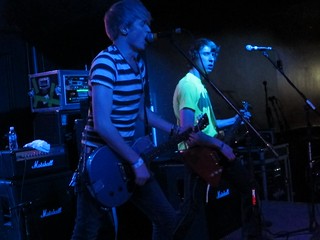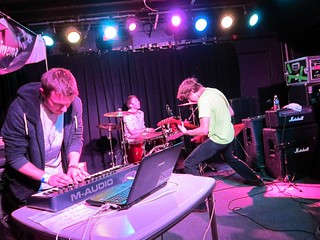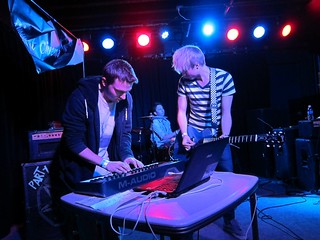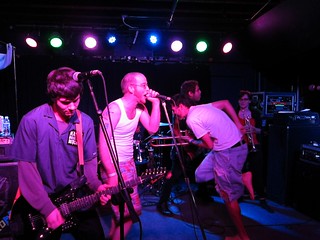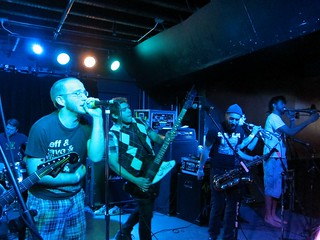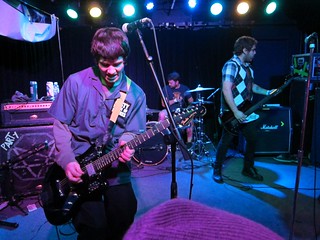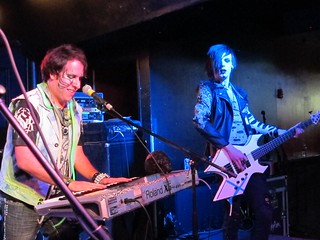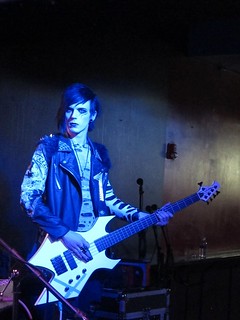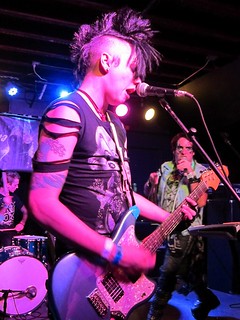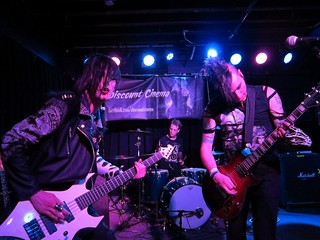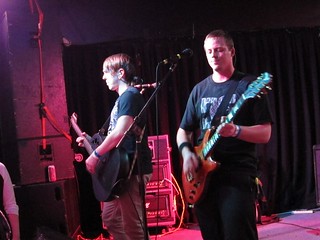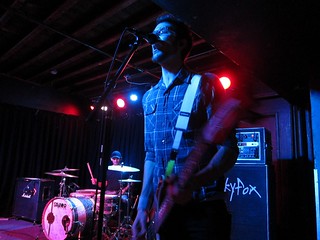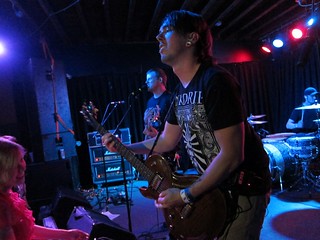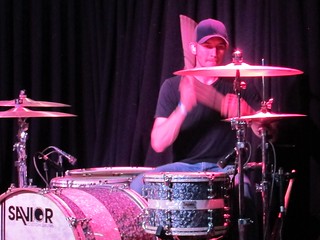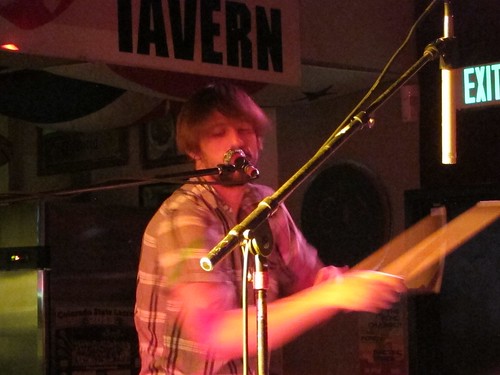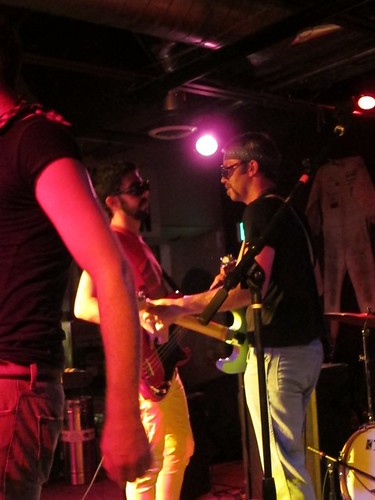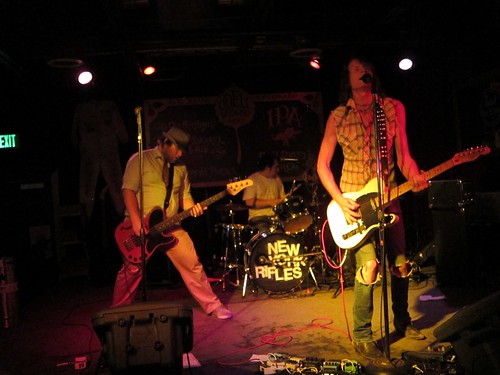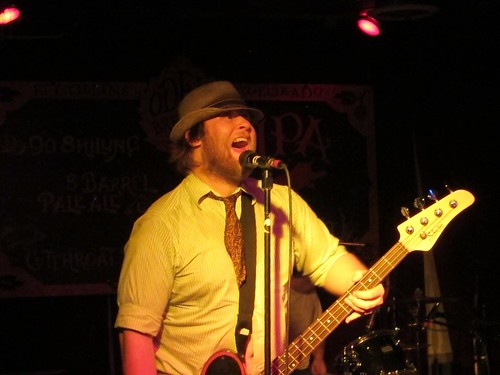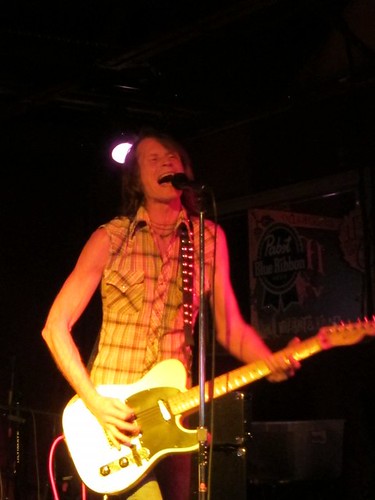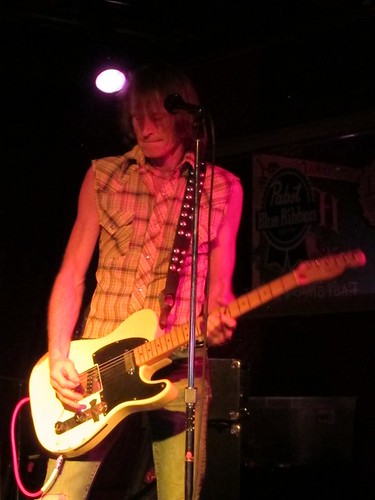DIY thrash in bittersweet little doses
3.0/5.0


 The biggest promise of punk rock was how it challenged the excesses of progressive rock. By reasserting music's folk roots, punk sucker-punched master musicians and their egos to assert that anyone could try their hand at it. It needn't take talent to start a band and there were no record executives to impress. Audiences rewarded the bands that created the most enthusiastic shows or vented the most spleen or had the most outrageous songs. The downside was that there was plenty of mediocre crap to wade through, but it was worth it to come across a group that had captured something special.
The biggest promise of punk rock was how it challenged the excesses of progressive rock. By reasserting music's folk roots, punk sucker-punched master musicians and their egos to assert that anyone could try their hand at it. It needn't take talent to start a band and there were no record executives to impress. Audiences rewarded the bands that created the most enthusiastic shows or vented the most spleen or had the most outrageous songs. The downside was that there was plenty of mediocre crap to wade through, but it was worth it to come across a group that had captured something special.
Of course, it couldn’t last; new wave and synthpop soon softened out the rough edges. Years later, pop punk resurrected the ideals of DIY thrashy fun, but raised the musical standards to favor a stronger degree of technical skill. Harmonies were encouraged and the songs were less likely to become train wrecks. Still, some acts like Green Day showed larger flashes of artistic ambition. The Underground Railroad to Candyland is no Green Day, but they hold true to an old school appreciation for simple garage rock structure seasoned with a solid anarchistic streak. Their new release, The People Are Home, favors short songs that step up, make their point, and move on. The playing is fairly competent, but the band shifts their perspectives like changing tee shirts, all the while keeping one foot in the garage.
The album leads off with “Dead Leg”, which digs up some found sound from an old Tom Vu real estate infomercial. The tight beat drives the cheery contrast between Vu’s hype (“You don’t have to ask your boss for a raise anymore, you can give yourself the best raise of your life: come to my seminar”) and the band’s biting response (“Look at the lids, how they don’t blink/ See how he’s dead inside.”). These wordy verses set the stage for the next sarcastic missile, “The Grownups Will Have Their Say”, which steamrolls through a sneering send up of adult advice and condescension. And like a teenager tuning out his parents’ lecture, it’s hard to really pay that much attention to the details.
By the time you get to “In Case You Dunno”, though, the spaces get wider and the lyrics get more repetitive as they turn from sarcasm to more visceral forms of expression. But frustration and worry are just passing phases, too. Like a set of vignettes from Short Attention Span Theatre, the ideas The People Are Home are a bit underdeveloped, and the Underground Railroad to Candyland relies on premature endings to salvage some pieces that barely get going, like the utterly simplistic, “You Don’t Like the Summer”.
The album closes on its strongest track, “Th Ppl R Hm”. The rhythm is compelling, some of the imagery clicks nicely, and it has some unexpected little treats like toy piano fills and subtle horn accompaniment. If all of these songs summon the chaotic rush of teenage existence, then this tune is summer vacation. Because The People Are Home captures that mixed up sense of angst and exploration, it serves as a good descendant of punk’s initial promise.
3.0/5.0



 The biggest promise of punk rock was how it challenged the excesses of progressive rock. By reasserting music's folk roots, punk sucker-punched master musicians and their egos to assert that anyone could try their hand at it. It needn't take talent to start a band and there were no record executives to impress. Audiences rewarded the bands that created the most enthusiastic shows or vented the most spleen or had the most outrageous songs. The downside was that there was plenty of mediocre crap to wade through, but it was worth it to come across a group that had captured something special.
The biggest promise of punk rock was how it challenged the excesses of progressive rock. By reasserting music's folk roots, punk sucker-punched master musicians and their egos to assert that anyone could try their hand at it. It needn't take talent to start a band and there were no record executives to impress. Audiences rewarded the bands that created the most enthusiastic shows or vented the most spleen or had the most outrageous songs. The downside was that there was plenty of mediocre crap to wade through, but it was worth it to come across a group that had captured something special.Of course, it couldn’t last; new wave and synthpop soon softened out the rough edges. Years later, pop punk resurrected the ideals of DIY thrashy fun, but raised the musical standards to favor a stronger degree of technical skill. Harmonies were encouraged and the songs were less likely to become train wrecks. Still, some acts like Green Day showed larger flashes of artistic ambition. The Underground Railroad to Candyland is no Green Day, but they hold true to an old school appreciation for simple garage rock structure seasoned with a solid anarchistic streak. Their new release, The People Are Home, favors short songs that step up, make their point, and move on. The playing is fairly competent, but the band shifts their perspectives like changing tee shirts, all the while keeping one foot in the garage.
The album leads off with “Dead Leg”, which digs up some found sound from an old Tom Vu real estate infomercial. The tight beat drives the cheery contrast between Vu’s hype (“You don’t have to ask your boss for a raise anymore, you can give yourself the best raise of your life: come to my seminar”) and the band’s biting response (“Look at the lids, how they don’t blink/ See how he’s dead inside.”). These wordy verses set the stage for the next sarcastic missile, “The Grownups Will Have Their Say”, which steamrolls through a sneering send up of adult advice and condescension. And like a teenager tuning out his parents’ lecture, it’s hard to really pay that much attention to the details.
By the time you get to “In Case You Dunno”, though, the spaces get wider and the lyrics get more repetitive as they turn from sarcasm to more visceral forms of expression. But frustration and worry are just passing phases, too. Like a set of vignettes from Short Attention Span Theatre, the ideas The People Are Home are a bit underdeveloped, and the Underground Railroad to Candyland relies on premature endings to salvage some pieces that barely get going, like the utterly simplistic, “You Don’t Like the Summer”.
The album closes on its strongest track, “Th Ppl R Hm”. The rhythm is compelling, some of the imagery clicks nicely, and it has some unexpected little treats like toy piano fills and subtle horn accompaniment. If all of these songs summon the chaotic rush of teenage existence, then this tune is summer vacation. Because The People Are Home captures that mixed up sense of angst and exploration, it serves as a good descendant of punk’s initial promise.

 Music reviews shouldn't start with a history lesson, and ska fans are already familiar with the twists and turns of how Jamaica’s interpretation of R&B evolved through the Two-Tone revival, leading to third wave’s pop punk approach. A review would come in handy in this case, though, because
Music reviews shouldn't start with a history lesson, and ska fans are already familiar with the twists and turns of how Jamaica’s interpretation of R&B evolved through the Two-Tone revival, leading to third wave’s pop punk approach. A review would come in handy in this case, though, because  Insistent and obsessive,
Insistent and obsessive, 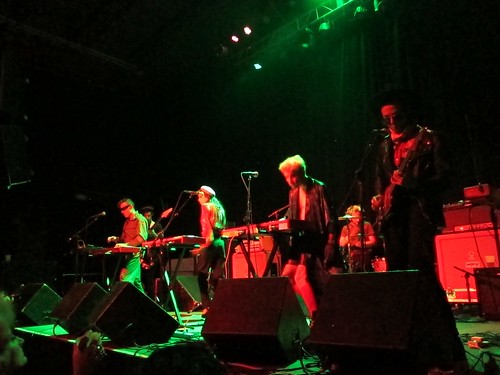
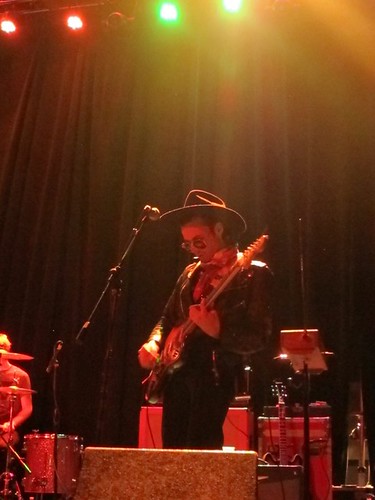


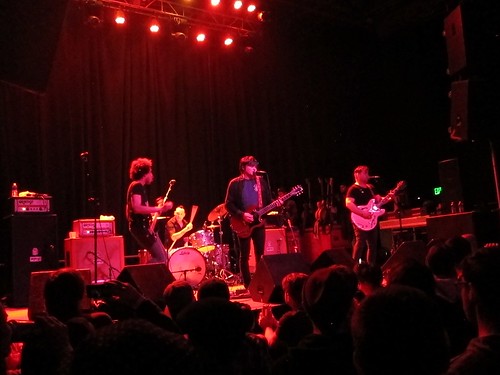
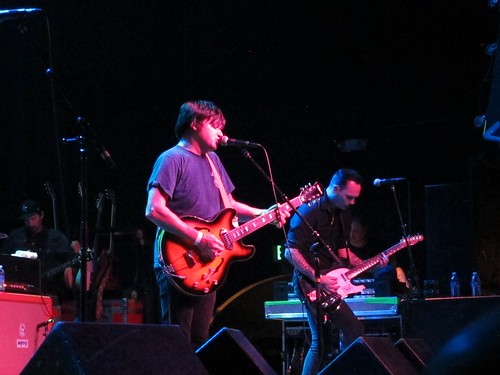
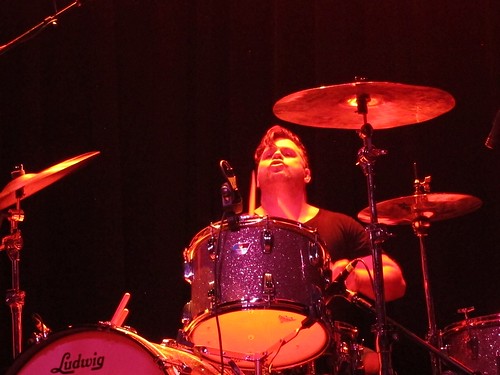
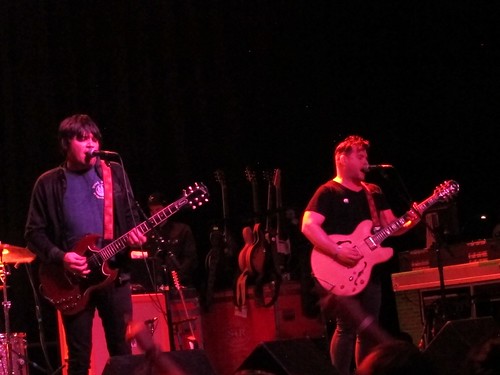
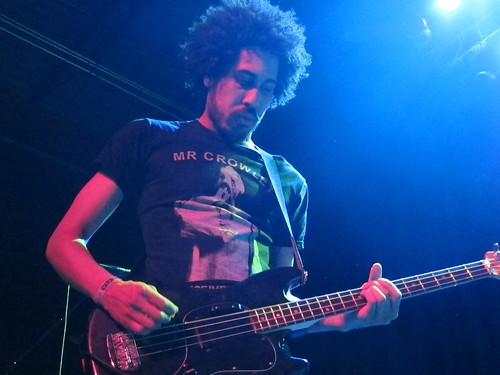
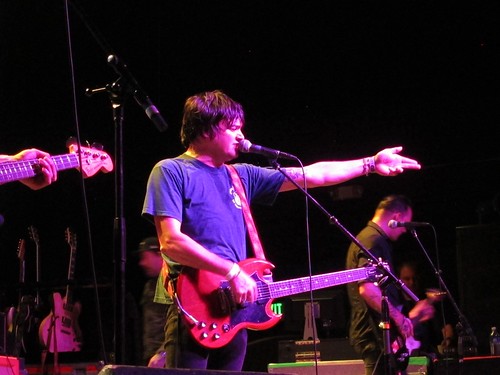


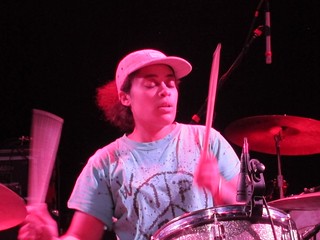

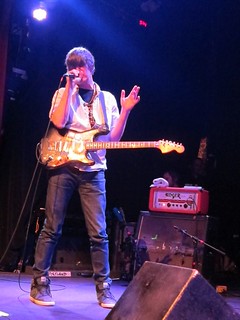
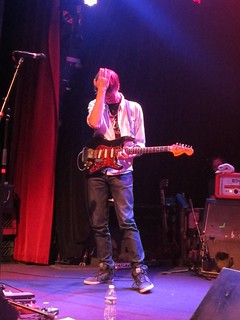
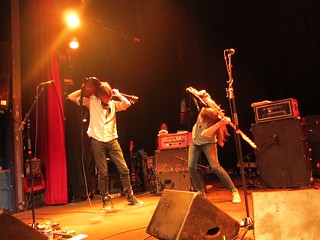
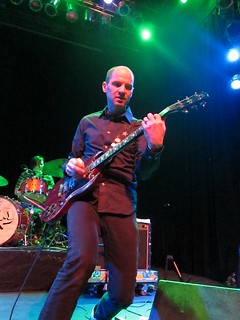
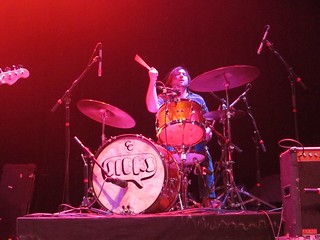
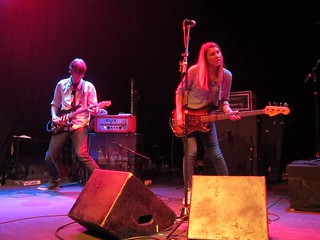
 What if you ran into your adolescent self? You’d like to think that you’d be as cool as you are now, or at least as cool as you remember. Most likely, though, you’d just realize that the younger you was only partly formed. This reissue of
What if you ran into your adolescent self? You’d like to think that you’d be as cool as you are now, or at least as cool as you remember. Most likely, though, you’d just realize that the younger you was only partly formed. This reissue of 